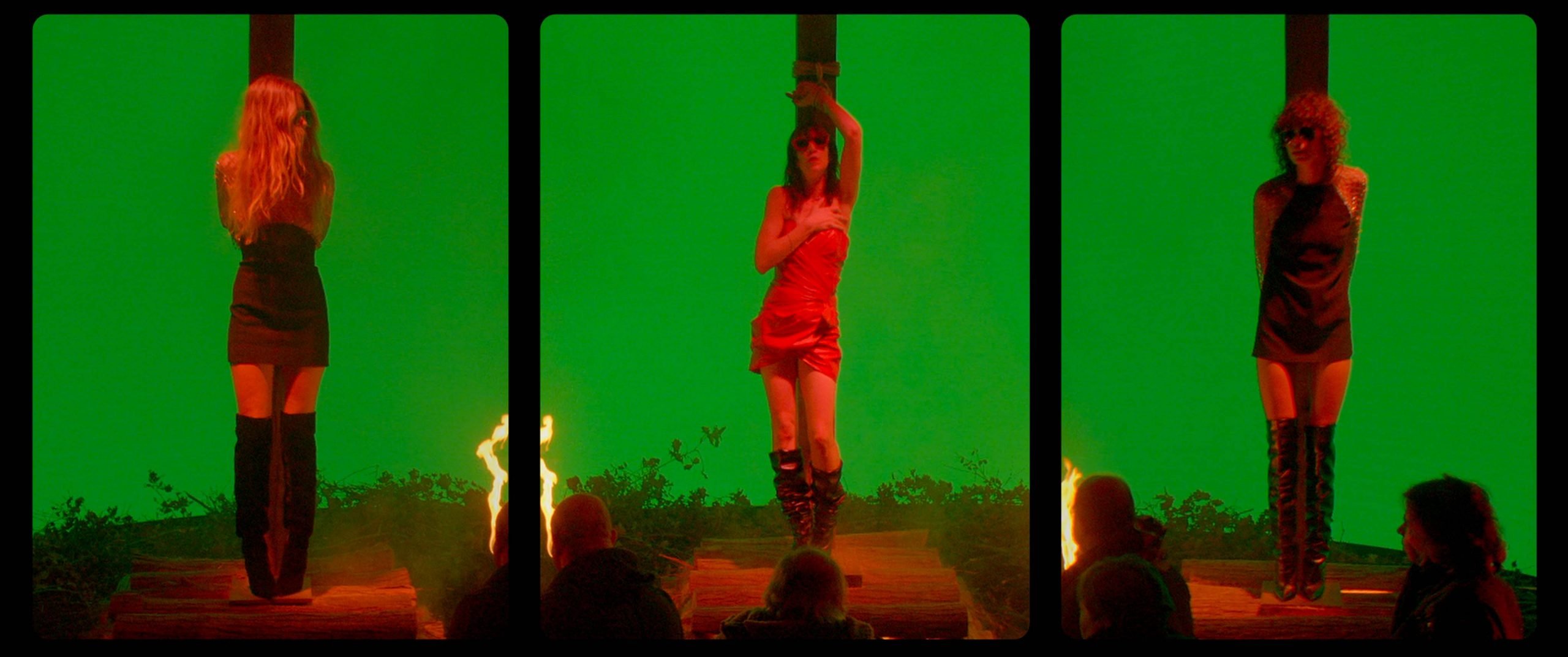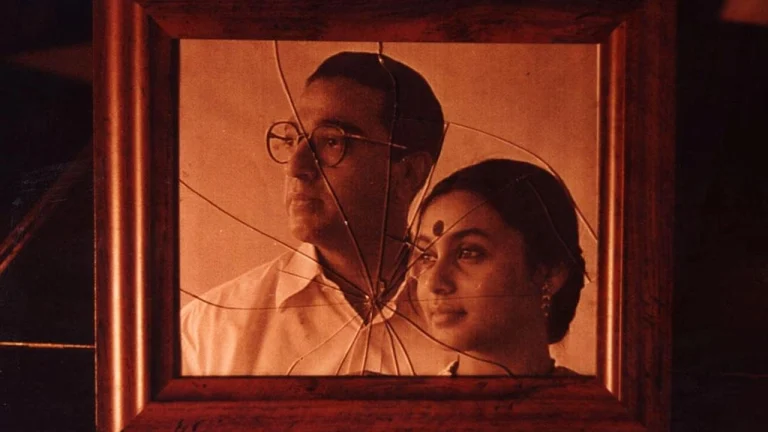Gaspar Noé’s aspirations as a cinematic provocateur find their acme in an experimental horror/satire hosted on a commercial premise. Originally intended to be an art project for the luxury fashion house Yves Saint Laurent, Lux Ӕterna (which translates to Eternal Light), is not only a bewitching ocular nightmare but also a post-modern deconstruction of consumerism. Such feats of subversion are not unheard of from the auteur of this Frankenstein. Noé has been widely lauded as an advocate of the avant-garde. His works have often been at the eye of controversies, replete with extended rape scenes (Irreversible, 2001), unsimulated 3D sex (Love, 2015), and violence and drug abuse (Climax, 2018). In his latest 51-minute-long graphic essay, which revolves around the mishaps while filming a witch-burning scene, Noé has made a novel attempt at capturing elements of love and hate alike. The resulting experience is akin to a ride in an overcrowded subway, which blissfully steers out of control and crashes into a parallel stroboscopic dimension.
Right from the very opening, the film warns you of an impending epileptic shock. Certainly, the visual sequences are not for the faint-hearted or the easily blinded. As we speak of epilepsy, Dostoyevsky appears, not in person, but in words, and you cannot help but feel that this learned, ambitious ad film is going to be your salvation. But for Noé, the film is as much a testimony of his cinematic idolatry, as it is his reflection on the art of filmmaking. When we think of unforgettable opening sequences, Bergman’s tribute to Histoire de cinéma at the beginning of his 1966 film, Persona, comes to our mind, where we find glimpses from the silent film era, and from Luis Buñuel. Noé pulls a few similar strings with a narrower context in mind, as he draws the curtain with clips from the cult classic “Häxan” (Benjamin Christensen, 1922), and “Days of Wrath” (Carl Theodor Dreyer, 1943). But unlike Bergman, he does not stop at that, and generously quotes his predecessors throughout, often as intersectional titles.
Related to Lux Ӕterna – Gods and Monsterss (2021) Review: Too Abstract to Even Philosophize About Life
Noé’s female leads are the only points where the film is allowed to converge briefly and focus on the task of character building before all of it is undone in a fit of hysteria. Beatrice Dalle, with her Betty-Blue feistiness and her infamous cauldron-bursting cackle, befits the role of a director with a vision, who is at loggerheads with her commercial crew and sponsors. And Charlotte Gainsbourg, with her own oeuvre of subversive films, is a natural and graceful addition to the production machinery. Abbey Lee’s contribution is also noteworthy, though she never gets extended screen-time to herself. The entire cast is allowed to retain their own first names, and most dialogue sequences are unscripted. These are actors characterized by themselves, who turn into wisps of smoke under a mangle of visual and aural shocks by the end.
“I am so lost in this production,” Abbey Lee’s character complains at one point, on being subjected to the atmospheric tension, further aggravated by her inability to understand French. The audience feels no different. The entire set plunges into a state of mayhem in no time, and we keep hoping for it to not get worse. But it does. Conflicts spring up everywhere. Bothersome journalists appear out of nowhere. Friends of friends get a bit too ambitious, and not to mention disconcerting phone calls right before a shoot.
Every inch of the screen is a supplement to the general chaos, and this is made sure of by the incessant usage of split screens contesting for attention. Parallel streams of dialogues and events become more and more difficult to follow. But that is not all there is to this element of experimentation. Noe and Debie surely knew what they were doing as they played around with different points of view of the same scene. They deftly added another dimension to the screen, where the characters were often aware of themselves being recorded. So essentially, the omnipresent filmmaker who is recording the filmmaking process is a part of that very set that is being filmed.
Also, Read – Exposure 36 [2022] Review – A meditative end-of-the-world scenario that only clicks occasionally
It is difficult to discern precisely why Noé chose witch-burning as a premise for his Rocky Horror Picture Show. In the initial sequence, Dalle and Gainsbourg talk about the perverse and commercial eroticism associated with scenes where women are debilitated. At other times, we find actresses complaining about inappropriate breaches of contract. The female director is largely emasculated. But it is also evident that this battle of the sexes delineates only one aspect of the raging conflict. In one of the sections, Noé quotes Dreyer as— “We filmmakers have a great responsibility.
It is up to us to raise the film from industry to an art.” To what extent has Noé fulfilled this responsibility through his industry-sponsored film? Though his technical prowess is successful in manipulating the senses to the point of distortion, it is still an external punch that can be recovered from. There is hardly anything insidious about it that leaves a deeply fatal mark. But then, one also wonders—is it just sheer irony that a film that condemns the commercialization of art, is itself a campaigner of a luxury brand? Or, is this Noe’s way of punishing capitalists—by subjecting them to rapid sensory blows in quick succession for a prolonged period of time?
Trailer
Lux Ӕterna Links – IMDb
Lux Ӕterna Cast – Béatrice Dalle, Charlotte Gainsbourg, Abbey Lee




![Lulli [2021] Netflix Review: An Unremarkable Romantic-drama despite its Engaging Parts](https://79468c92.delivery.rocketcdn.me/wp-content/uploads/2021/12/Lulli-2021-Netflix-768x384.jpg)

![The Great Movement [2021]: ‘Venice’ Review – A character study of the ignored individuals of a city](https://79468c92.delivery.rocketcdn.me/wp-content/uploads/2021/09/The-Great-Movement-El-Gran-Movimiento-1-768x432.jpeg)
